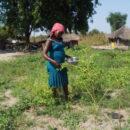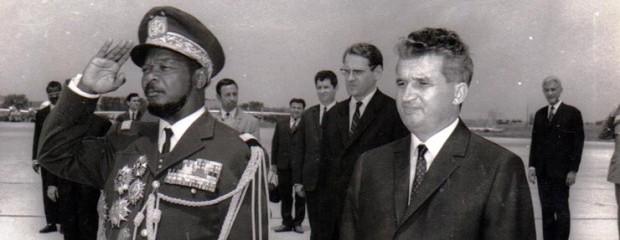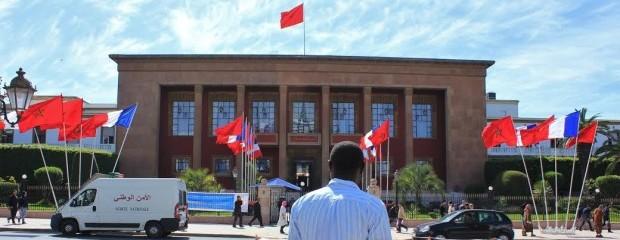A letter from Warrap State, South Sudan
 A Comment on Internal Conflict
A Comment on Internal Conflict
Naomi Pendle
Warrap State, May 2011
As we sit on crafted goatskin chairs in a rural Dinka market the teenage boy proudly greets us. Despite his dust covered shirt and naked feet, over his shoulder he displays his new gun. AK47s can be found everywhere in these Dinka lands – behind the seat of the car, beneath the mattress, above the rafters. Yet, this weapon is something more modern and more sophisticated. Without their own source of weapons and ammunition, the Dinka Titweng (cattle guarding youth) are advised to obtain their arms during battle. The boy’s shining, new gun is his booty from the latest raid into his county by people from the neighbouring Unity State. The day before, ninety people had died in fighting in Gogrial East (Warrap State). The boy had failed to retrieve any bullets that would enable him to use the gun, but there was visible pride in his new weapon. He assumed its origin was Khartoum.
With just two months until independence the escalating violence in South Sudan is heightening fears of a new civil war in this nascent nation. While Abyei has taken much media attention in recent days, internal violence inside the South itself also has the ability to destabilize the whole region, continuing indefinitely. Seasonal inter-community conflict is nothing novel in South Sudan, but a new type of conflict – motivated by national politics – adds different dynamics. This new conflict is less easily restrained by local methods.
Inter-community conflict at this dry time of the year is as old as the communities themselves that inhabit South Sudan. In the driest months (from January to June) cattle of the pastoralist communities are herded from the dry regions of permanent settlement to the swampy pasturelands. Here the cattle and herders of various communities converge together. It is during this season of proximity that conflicts are common. Involving the theft of cattle and subsequent retaliation, these conflicts are implemented by the Titweng. Initially armed with spears, the conflicts and subsequent peace were controlled by a traditional leadership. Despite the national context of independence, the recent deadly raids into Gogrial East were still focused on cattle. This suggests that they were nothing more than contemporary manifestations of older conflicts. The pattern was familiar to the region – it was the cattle-camps that were targeted, the teenage Titweng that were killed, and the cattle that were defended.
The cattle of the communities of South Sudan are decorated with gapping horns and majestic multi colours. Their milk, dung and sacrificial use gives the animals a multifaceted purpose. Yet, like gold, their real worth in South Sudan is as a wealth storage mechanism. With bridal price a requirement of marriage, they are not only needed for life and financial security, but also to create a family. The perceived value of cattle explains the dynamics of these “˜old’ conflicts. Yet, the “˜new’ conflicts, driven by national, political concerns, also have a place for cattle. The taking of cattle can feed hungry, rebelling soldiers. The cattle can also be transported for sale in other markets to provide the necessary funds for national political concerns.
The new guns, shining black boots and captured fragments of soldiers’ uniforms all hint that the latest raid into Gogrial East was a new type of conflict. It was not merely conducted by the Titweng – the implementers of the violence included soldiers; organized as a military unit and fighting for a national political end. Dissenting from the SPLA/M (the southern army and governing party), dissident SPLA commander Peter Gadet has gathered much of his support in Unity State. It is assumed that it was his forces that fought into Gogrial East.
Yet, the old inter-community conflicts have long included both the gun and the soldier. In Bahr al-Ghazal, the Titweng found themselves armed during the height of the civil war in the 1990s. They have retained their guns until now, even if they often lack training and ammunition. Therefore, when home from the army, soldiers will often join the Titweng in their region to offer skilled support. A recent counter-raid in early May 2011 by the Dinka on the Murle in Jonglei was apparently facilitated by five SPLA acting as Titweng while home on leave.
The emerging political violence, such as that seen by Gadet’s militia in Gogrial East, is something different from new weapons and trained Titweng assimiliated into an old conflict. Violence motivated by national politics makes war and peace more complex. The Titweng are forced to become a more superior military effort to face the militia groups. With many of the SPLA called to Abyei, they are left alone to defend their lands and property. More crucially, the making of the conflict and the peace no longer sits in the hands of the local chiefs and traditional leaders. The Titweng have often proven compliant to the community elders if instructed. With an alternative, militarized source of authority the decision to bring peace is now made in Juba or Khartoum. Any negotiations on the ground are directed through Thuraya calls to distant figures. Unlike the old conflicts, peace is not made beneath the trees in the Toc (pasturelands) of the cattle herders. Peace is made too far away from where the violence occurs and is slower in coming. These new conflicts are subsequently longer and deadlier than the old.
Naomi Pendle is currently teaching at the University of Bahr el-Ghazal (Wau) and Marol Academy (Warrap State). She has now lived and worked in this region of South Sudan for two years.






